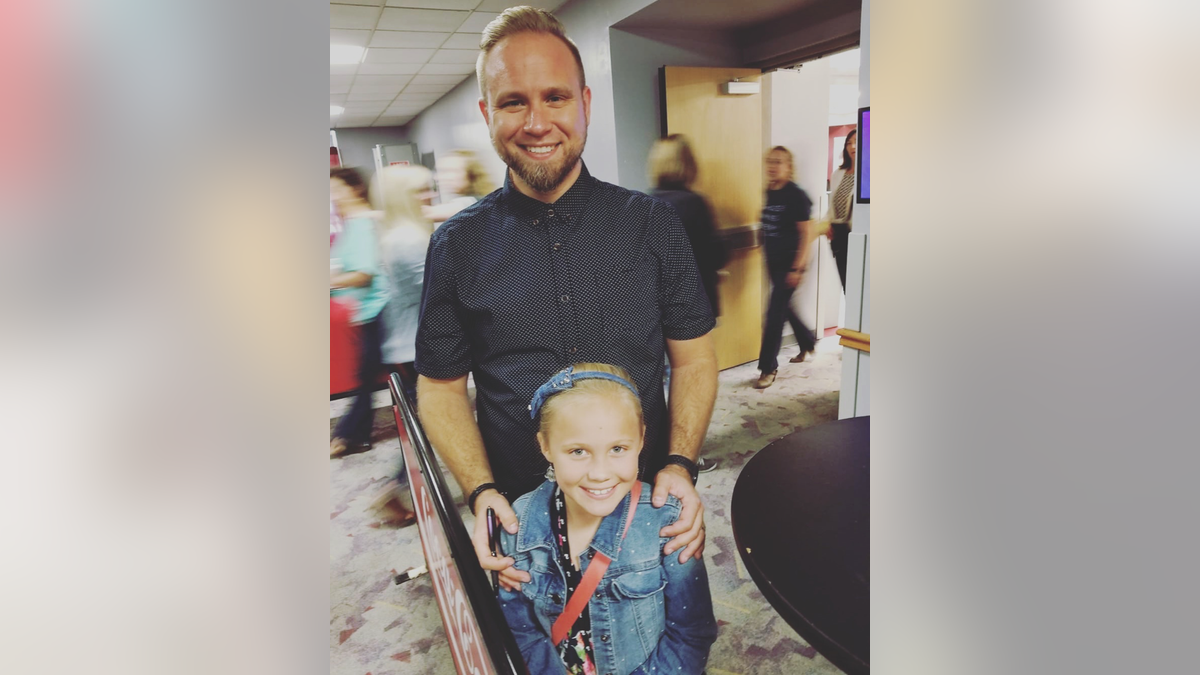
Lily Faith laying in the grass. (Kari Marie Photography)
The most meaningful parenting experiences often come in the unplanned, organic moments of life. The problem is, all the interruptions of our always connected society can cause us to miss out on teaching and learning some incredible lessons with our children and grandchildren.
I get it. As a father of five with a busy career and trying to crush it every day, it’s easy to blur the lines and make excuses for not noticing our children. We can forget what matters most.
That was almost me on my recent birthday. My wife and I celebrated by taking our children to visit NASA’s Johnson Space Center. I made the hard decision to switch off my phone and be present. I’m so glad I did. We decided to have my birthday lunch at our favorite place, Chick-fil-A.
We asked our nine year old, Lily Faith, to pray for our meal, and that’s when it happened: “Dear Alexa, please bless our meal today, and Daddy ...” Our entire family exploded with laughter (including some nice folks next to us). Lily, on the other hand, didn’t think it was funny at all. She began crying and couldn’t eat. Embarrassed, she exclaimed, “Daddy, you know what I meant!”
Thankfully, what followed was a beautiful, unscripted family talk about everything from artificial intelligence to the nature of prayer to the fact that it’s okay to make mistakes.
Lily’s innocent mistake that day opened our eyes to how a small device that is becoming so prevalent in homes is making a huge impact on the thoughts and communication of our children.

(Audrey Johnston)
Experts are starting to recognize the pressures on a new generation of children surrounded by artificial intelligence (AI), as well as computational neuroscience (modeling how the brain does or does not work like a machine), machine learning, robotics, and 24/7 connectivity. By the way, if you use your smart phone or Netflix, you are interacting with machine learning. (For an easy to understand overview of this important terminology, check out this slideshow from Berkeley’s CS188.)
Here are four things to know about the influence of artificial intelligence in the home:
AI will answer your kids’ questions, even if you won’t.
As any parent, teacher, or coach knows, children are full of questions, trying to understand how life works. If you are too distracted or closed off to them, someone or something else will answer those questions. Whether they turn to Alexa, Siri, Google Home, or even J.A.R.V.I.S., we need to consider who is behind the curtain programming these “smart” answers.
“I don’t know, but I am always learning,” Alexa responded when I asked a difficult question not long ago. Did you know Amazon Alexa is adding 5,000 skills every 100 days and now has over 30,000 skills?
And guess what? If Amazon Alexa doesn’t know the answer today, it may tomorrow with a new “Answer update” feature.
I make sure my kids know it is not a sin to ask any question. This is where many parents err. They give their kids the message that certain topics are off-limits, so they don’t talk freely.
Unanswered questions can even follow us into adulthood. I have received over 10,000 questions via text-message at Christian Thinkers Society. I believe people turn to us because they didn’t feel comfortable seeking advice or asking questions growing up.
Give your children permission to ask you anything. It’s life changing.

(Audrey Johnston)
AI data can be misused, abused, and misrepresented.
I was talking with a friend of mine, John Gibson, a mathematician and father of six young children, about the ways in which the AI well can be poisoned. John reminded me that everyone should be wary RIGHT NOW, not in the future, about the abuse of this data by those who control it.
For instance, do a Google image search for something like “white American couple” and you’ll see what happens when those that control the flow of information decide that they should curate it rather than allowing the system to make its own decisions. To be clear, the previous reference is illustrative of data curation and nothing more.
Another example is the “Louder with Crowder” video that caused quite a stir regarding Alexa’s opinion of Jesus Christ. Alexa replied, “Jesus Christ is a fictional character.”
By the way, all this should remind us that we are responsible for our parenting, and replies like Alexa’s actually gives us opportunities to tell our children the facts, not fiction, related to any issue.

(Audrey Johnston)
AI is always listening, and I need to start listening, too.
Another friend of mine says his fifteen-year-old-daughter thinks it’s creepy that “someone” is always listening via their Echo Dot in the kitchen. It’s hard to disagree. Who is listening? Someone, somewhere. Our kiddos know Alexa will always answer.
We need to start listening with intentionality to our children, and that includes noticing their nonverbal messages and signals. Mom, Dad, encourage your child to talk whenever, about whatever, and don’t forget, it might not be on our timetable.
There are more questions for another day. For example, how is AI changing our kids’ brains? Or how they learn? Or process information? Are our children becoming less-literate? Studies indicate we are losing the ability to do “deep reading” and learning less.

(Audrey Johnston)
AI is here to stay.
Did you know the first AI program was designed in the 1950s? Now, nearly 50 million Americans speak to a “smart” device in the home –and this has happened in 24 months. Compare this surge to the 13 years it took televisions to hit the 50 million penetration mark and four years for the internet.
In 2016, The Washington Post experimented with AI technology to cover the Rio Olympics and U.S. elections. The AI “author,” Heliograf, created 850 stories, though human editors were still needed.
If you want to be hired immediately, have a skill set in the emerging fields of machine learning, deep learning or natural language processing – these are the three most requested jobs on Monster.com.
My friend Justin Brierley interviewed two members of the artificial intelligence community: Alexa vs. Google Home. The video is quite funny but it hints at deep implications for our future. “What is the meaning of life?” Justin asked. Google reply? “That depends on the life in question.” When asked, “Do you believe there is God?” Google replied, “I really don’t know.”
And when Justin asked, “What happens when you die?” Google replied, “Hopefully you plug me back in!”








































